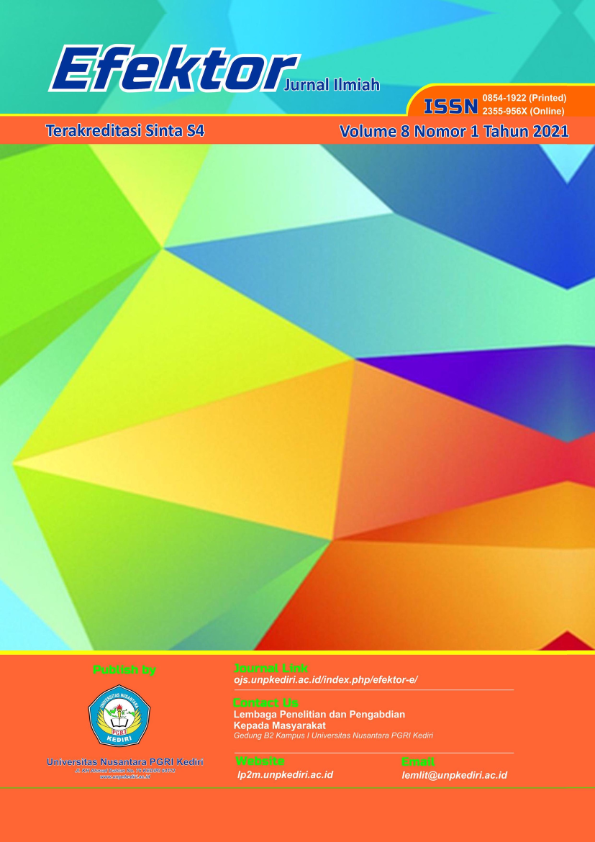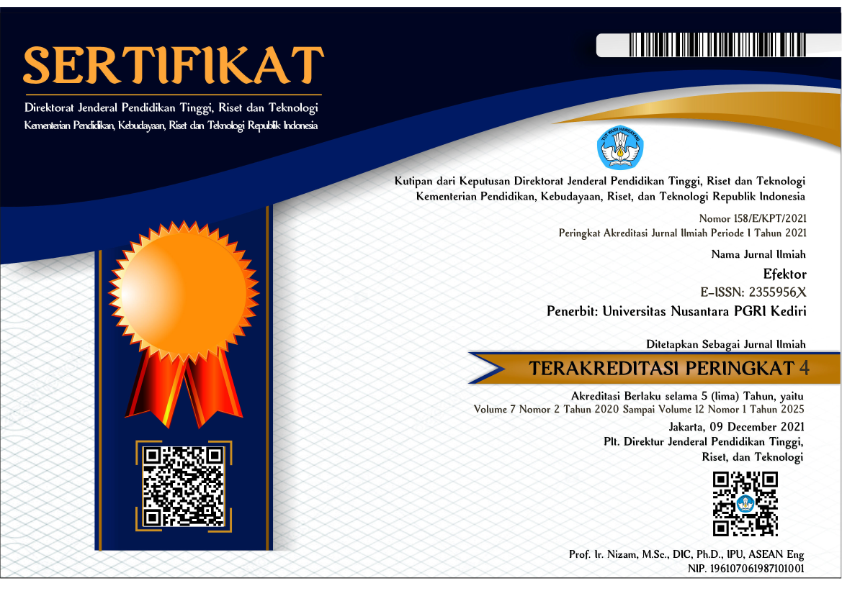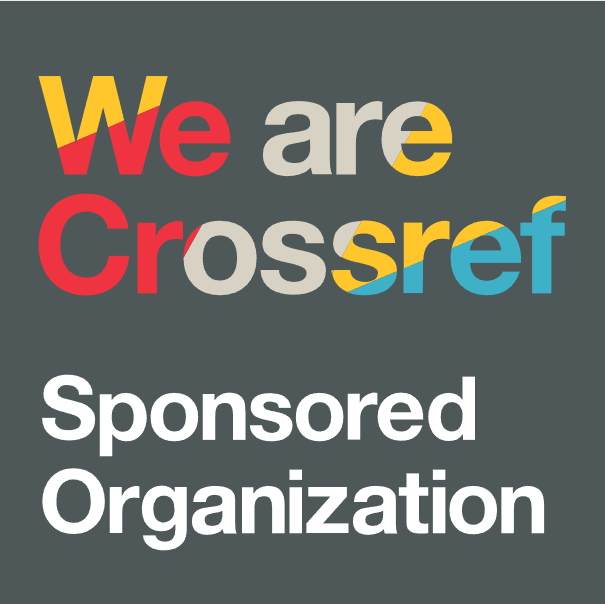Dampak Pandemic Covid- 19 Terhadap Indeks Pembangunan Ekonomi Inklusif Jawa Timur Indikator Tingkat Kemiskinan Dan Ketimpangan
DOI:
https://doi.org/10.29407/e.v8i1.15708Keywords:
the impact of COVID-19, the poverty rate, the level of InequalityAbstract
This research uses descriptive quantitative approach. The purpose of this research is to find out how the Covid 19 pandemic affects the inclusive economic development index. To conduct this research, the method used is quantitative method with statistical tests between dependent variables and independent variables in order to provide results that can be explained by numbers. It is based on data analysis and relevant data collection techniques obtained from previous studies and the official website that published the data. Sources of data in this study use secondary data. The data is in the form of documents and reports, which are in the form of an overview of the research location and data relevant to a study. Researchers used data collection techniques from various scientific journal literatures that were reviewed and processed. The results of the test show that there is a significant effect between Covid 19 on inclusive economic growth in East Java. Where the Covid-19 Virus pandemic has had a number of significant impacts in the domestic economic sector and on the existence of MSMEs in the country and nation. The impact of Covid-19, which has caused economic shock, also greatly affects the economy, both individually, micro, small, and medium enterprises, the country's economy which includes local, national and global levels.
References
Arsyad, Lincolin. 2010. Ekonomi Pembangunan. Jakarta: Ghalia Indonesia.
Ayuningtyas, Taufik Eka Avianti. 2020. Dampak Pandemi Covid-19 Terhadap Bisnis dan Eksistensi Platform Online”, Vol. 22 No. 01. Jakarta: Sekolah TinggiI lmu Ekonomi, 30 April.
Damarjati, Danu. Data Corona Terkait Indonesia, 30 April 2020 Per Pukul 16.00 WIB, Availabel at. https://news.detik.com/berita/d-4997618/data-corona-terkait-indonesia-30-april-2020-per-pukul-1600-wib
Ilham, Muhammad. 2011-2015. Analisis Ketimpangan Ekonomi Menurut Provinsi Di Indonesai.
Moleong, Lexy J. 2009. Metode Penelitian Kualitatif. Bandung : PT. Rwmaja Rosdakaya.
Murni, Asfia. 2006. Ekonomi Makro Pertumbuhan Ekonomi dan Kebijakan Makro. Bandung: PT Refika Aditama
Pahan, Aknolt Kristian Pak. Covid-19 dan Implikasi Bagi Usaha Mikro, Kecil, danMenegah. Bandung: Fakultas Ilmu Sosial dan Ilmu Politik, Universitas Katolik Parahyangan.
Pangiuk, Ambok. 2018. Pengaruh Pertumbuhan Ekonomi Terhadap Penurunan Kemiskinan Di Provinsi Jambi Tahun 2009-2013 ”, Vol. 02 No. 02. Sumatra: Fakultas Ekonomi dan Bisnis Islam UIN STS Jambi.
Subagiyo, Rokhmat. 2017. Metode Penelitian Ekonomi Islam Konsep dan Penerapan,. Jakarta: Alim’s Publishing.
Subri, Mulyadi. 2003. Ekonomi Sumber Daya Manusia dalam Prespektif Pembangunan, edisi satu. Jakarta: PT. Raja Grafindo.
Suryahadi, Asep, Ridho Al Izzati , Daniel Suryadarma. 2020. Kemiskinan & Ketimpangan Indonesia Kertas Kerja draf.
Tambunan, Tulus T.H. 2003. Perekonomian Indonesia: Beberapa Masalah Penting. Jakarta: Ghalia Indonesia.
Todaro, Michael, P, Smith, Stephen C, 2003. Pembangunan Ekonomi Di Dunia Ketiga Edisi Kedelapan. Surabaya: Erlangga.
Umiyati, Syahrur Romi, Etik. 2018. Pengaruh Pertumbuhan Ekonomi dan Upah Minimum Terhadap Kemiskinan di Kota Jambi”, Vol. 07 N0. 01. Jambi: Prodi Ekonomi Pembangunan Fakultas Ekonomi dan Bisnis Universitas Jambi.
UNICEF. 2021. Ringkasan Kebijakan Dampak Covid-19 Terhadap Kemiskinan Dan Mobilitas Anak Di Indonesia. Kebijakan Fiskal Kemenkeu UNICEF.
Downloads
Published
Issue
Section
License
Authors who publish with this journal agree to the following terms:
- Copyright on any article is retained by the author(s).
- The author grants the journal, the right of first publication with the work simultaneously licensed under a Creative Commons Attribution License that allows others to share the work with an acknowledgment of the work’s authorship and initial publication in this journal.
- Authors are able to enter into separate, additional contractual arrangements for the non-exclusive distribution of the journal’s published version of the work (e.g., post it to an institutional repository or publish it in a book), with an acknowledgment of its initial publication in this journal.
- Authors are permitted and encouraged to post their work online (e.g., in institutional repositories or on their website) prior to and during the submission process, as it can lead to productive exchanges, as well as earlier and greater citation of published work.
- The article and any associated published material is distributed under the Creative Commons Attribution-ShareAlike 4.0 International License













